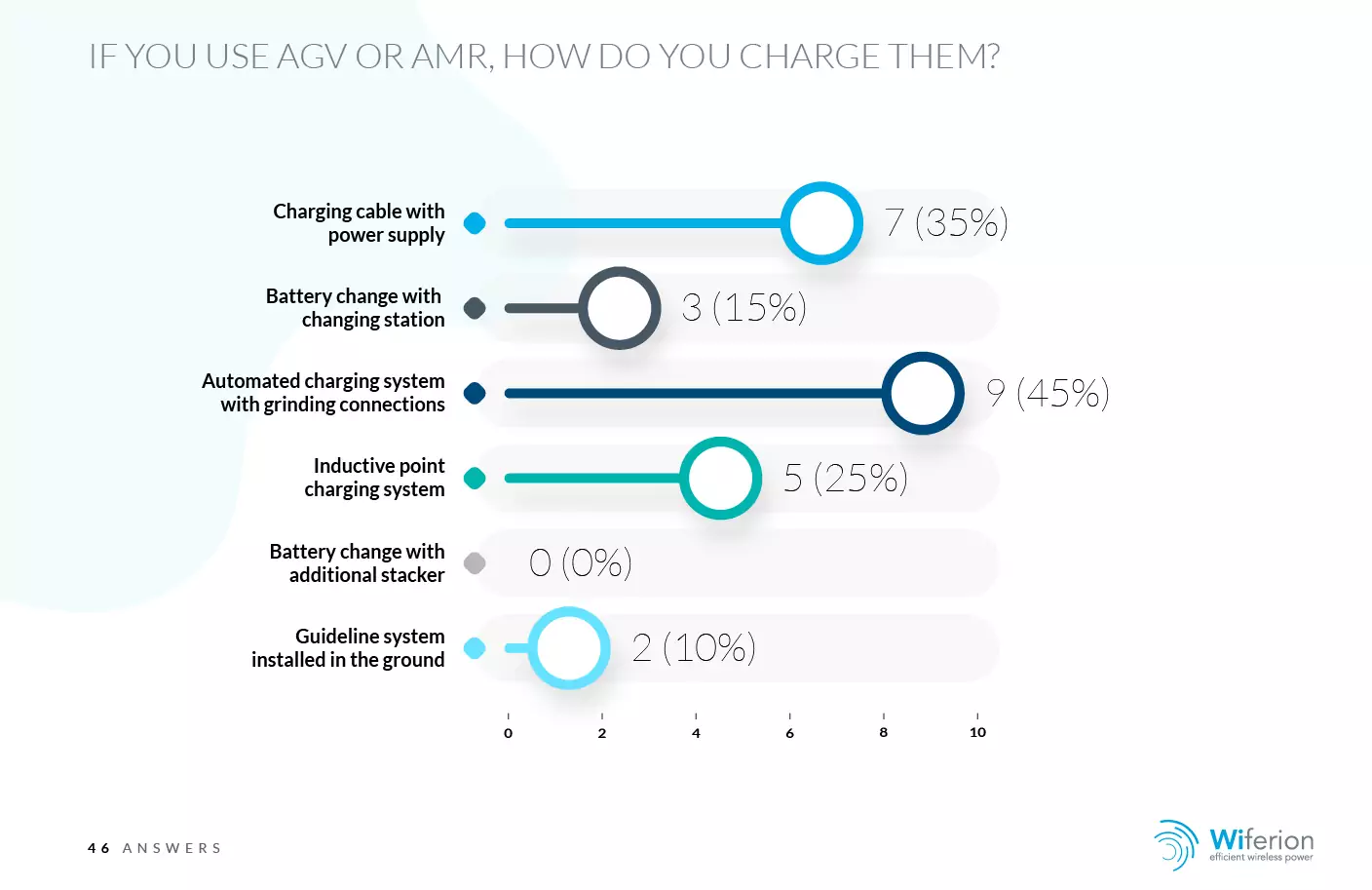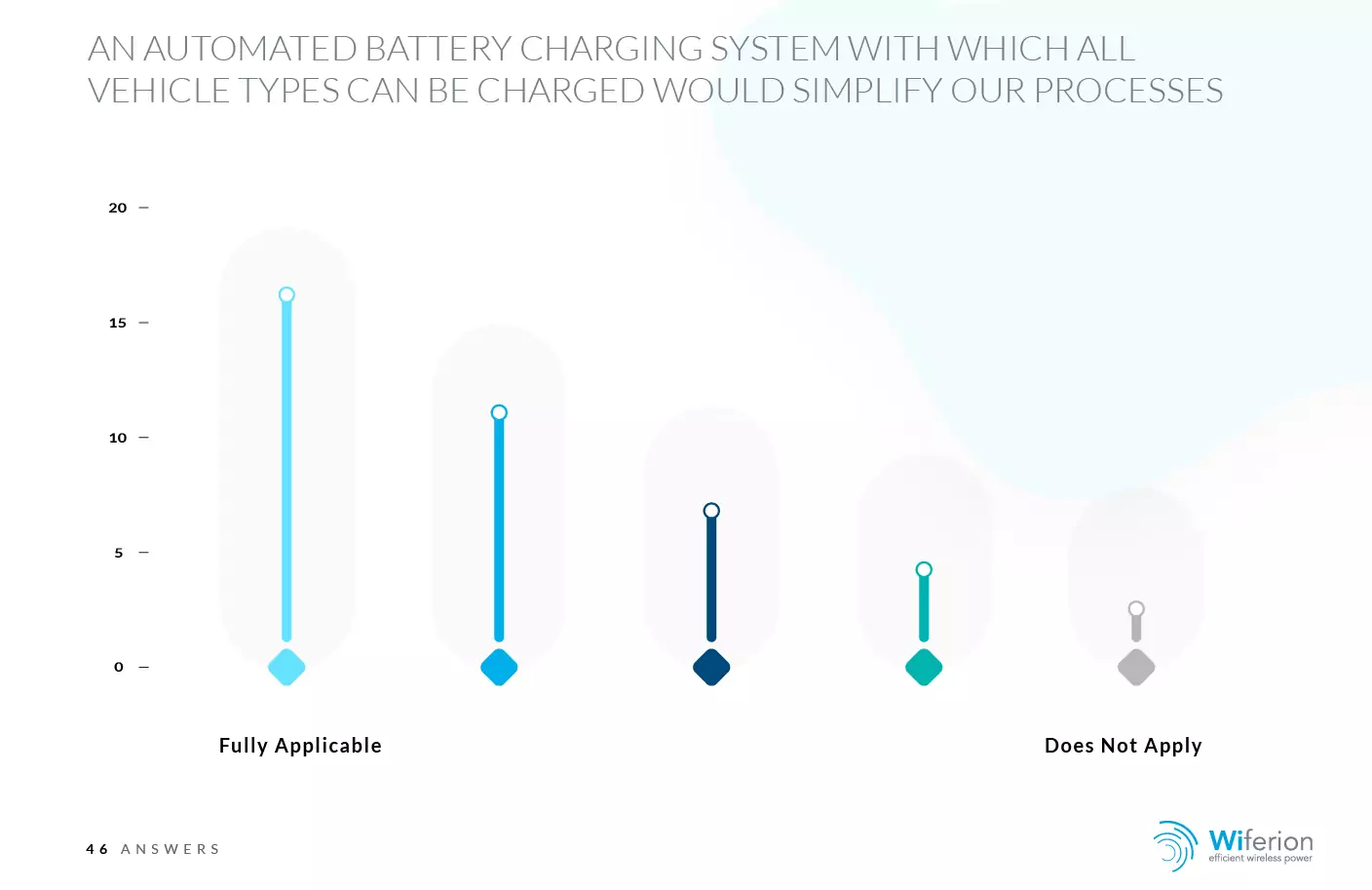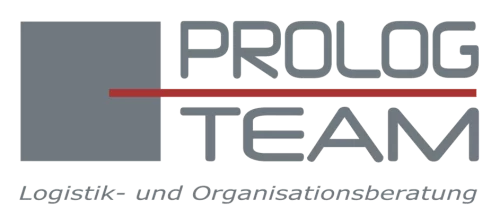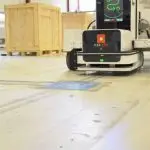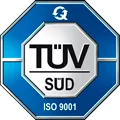Automated vehicles such as automated guided vehicles (AGVs) are now an integral part of warehousing and production processes – and the trend is rising. This is the conclusion of a joint market study by the logistics consultancy PROLOG-TEAM and the Ludwigshafen University of Applied Sciences. At the same time, the energy supply of the vehicles is treated rather stepmotherly. This is where there is great potential for optimization in terms of efficiency and increased productivity.
Market survey in logistics, production and assembly
The trend is clear: In intralogistics, the automation of processes is steadily increasing. According to the current study by PROLOG-TEAM, classic industrial trucks such as forklifts and hand pallet trucks are still used most frequently. However, the high proportion of automated vehicles such as AGVs and autonomous mobile robots (AMR), totaling more than 40%, is surprising. The degree of automation of intralogistics processes is thus already at a considerable level.
Potential of the lithium-ion battery remains untapped
Another result of the study: The energy supply of AGV & electric vehicles is predominantly provided by lithium-ion batteries. And the majority of those who currently use other technologies plan to convert in the future or purchase the powerful battery anew. The reasons are straightforward: longer service life, low maintenance requirements, low weight and reduced operating costs, as well as the option of intermediate charging. It is therefore all the more surprising that one third of the respondents were unable to provide any information on the batteries used. Accordingly, many companies do not deal with the energy supply of their transport systems, although the lithium-ion battery in particular offers clear economic advantages, if the total cost of ownership (TCO) and the return on investment (ROI) are considered.
Charging processes are often not efficient
A look at the charging process provides interesting insights. One third of respondents state that the charging process takes more than an hour, and another third have not yet determined the length of the charging process at all. What is particularly striking is that vehicles are predominantly charged after the end of the shift or even only when the energy has been used up. As a result, vehicles are at a standstill for longer and production losses are imminent. This makes it all the more important to have robust, automated charging processes that enable in-process charging and guarantee maintenance-free operation.
Energy supply of the AGV not optimized
This can be achieved with inductive point charging systems, which offer a high level of supply reliability. They have clear advantages over traditional charging systems with sliding contacts or charging cables. Their maintenance costs are not insignificant, but are not recorded or are not known by almost 80 % of the study participants. The study also reveals significant gaps in energy and logistics management in this area. One thing remains to be said: Up to now, a large proportion of companies have missed the opportunity to increase their own productivity by optimizing their charging processes.
Around 50 predominantly large and medium-sized companies from industry, trade and the service sector were surveyed for the study. PROLOG-TEAM evaluated the results together with the Ludwigshafen University of Applied Sciences. Wiferion, the provider of solutions for the wireless energy supply of industrial e-vehicles, provided support with the content and technical design.
Download now the complete study on the energy supply of AGVs
Fill in the form below and receive the complete study “TRANSFORMATION OF THE ENERGY SUPPLY OF AGVS AND AMRS IN LOGISTICS”.
About PROLOG-TEAM – Logistics and Organization Consulting
PROLOG-TEAM is an experienced logistics and organizational consulting company located in Karlsruhe. Since the mid-nineties, the consultants have been supporting well-known companies from the industrial, commercial, hospital, municipal and logistics services sectors in the analysis, decision-making and conception phases as well as during project implementation. PROLOG-TEAM’s service areas include material flow and warehouse planning, selection of IT systems in the areas of enterprise resource planning and warehouse management systems, procurement optimization, inventory optimization, site and plant planning, and implementation of in- and outsourcing projects. PROLOG-TEAM takes over the entire project management and realizes process optimizations (process and structural organization) as well as process cost analyses. The logistics and organization consultants are also active in the reorganization of procurement and distribution logistics as well as in purchasing and sales. All partners and employees of PROLOG-TEAM have many years of experience in a wide variety of business sectors and therefore also act as interim managers. The company’s reference list includes well-known logistics service providers as well as renowned companies from industry, trade and municipal sectors.

